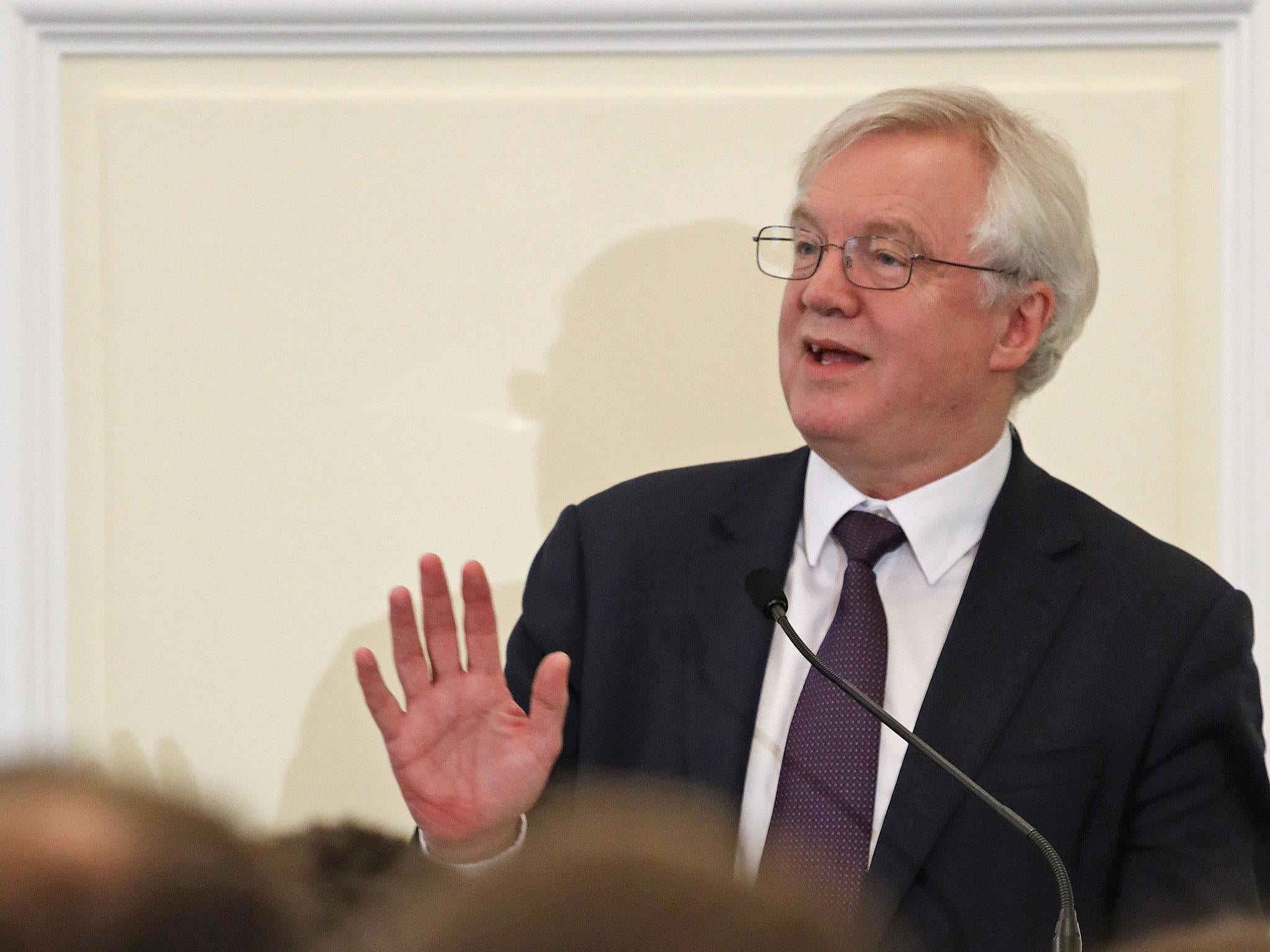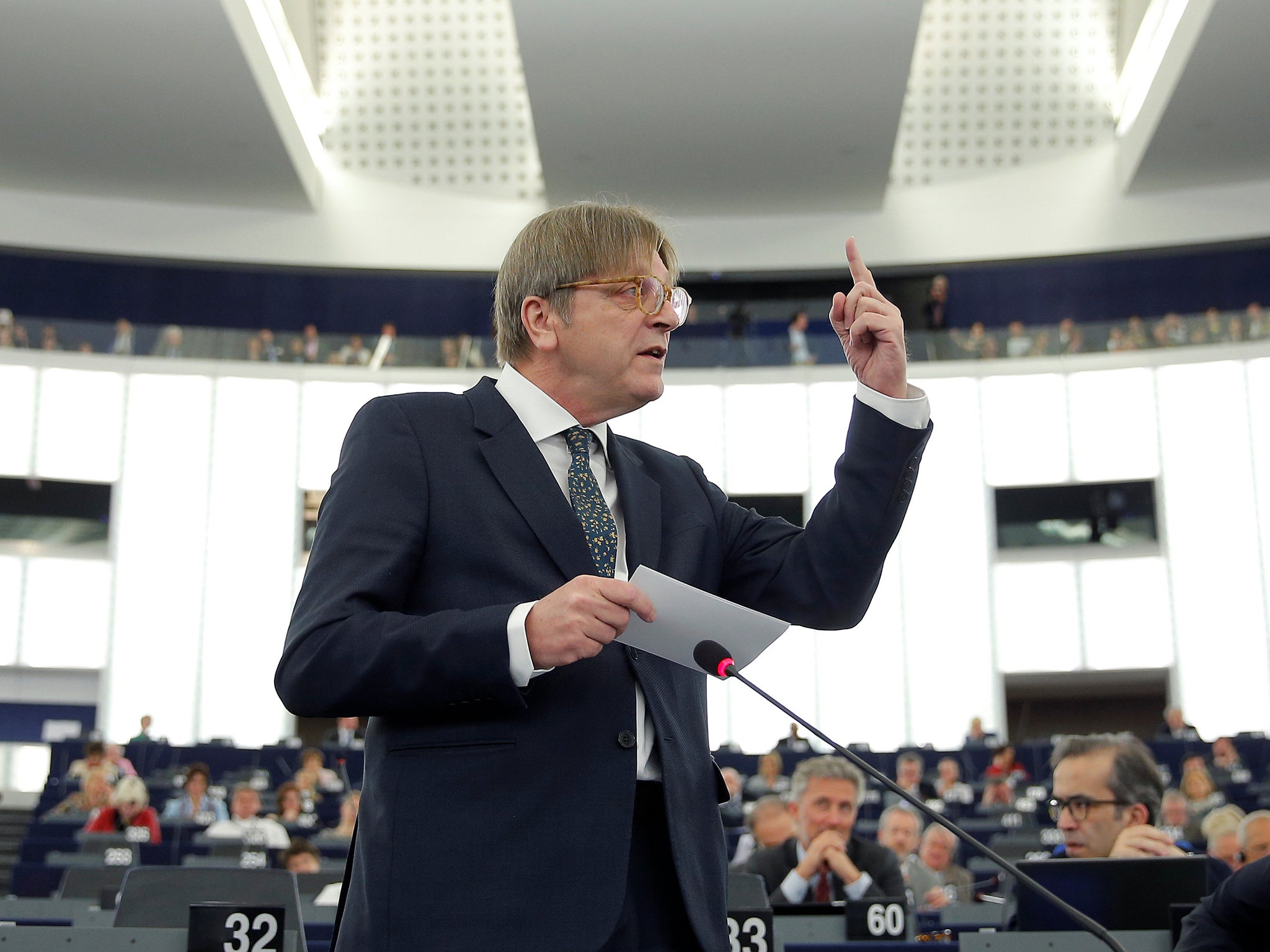Brexit: David Davis rushes to repair damage after 'undermining trust' in negotiations
Brexit Secretary says he will be working closely with the European Parliament in the next phase of talks

Your support helps us to tell the story
From reproductive rights to climate change to Big Tech, The Independent is on the ground when the story is developing. Whether it's investigating the financials of Elon Musk's pro-Trump PAC or producing our latest documentary, 'The A Word', which shines a light on the American women fighting for reproductive rights, we know how important it is to parse out the facts from the messaging.
At such a critical moment in US history, we need reporters on the ground. Your donation allows us to keep sending journalists to speak to both sides of the story.
The Independent is trusted by Americans across the entire political spectrum. And unlike many other quality news outlets, we choose not to lock Americans out of our reporting and analysis with paywalls. We believe quality journalism should be available to everyone, paid for by those who can afford it.
Your support makes all the difference.David Davis has rushed to repair damage caused by his comments about the breakthrough Brexit deal not being legally binding after Brussels politicians warned he was “undermining trust” in the negotiating process.
European Parliament Brexit chief Guy Verhofstadt lashed out at the Brexit Secretary on Tuesday and revealed the body would toughen up its red lines on Brexit after Mr Davis said the joint text, agreed only on Friday, was “much more a statement of intent than it was a legally enforceable thing”.
Mr Davis found himself telephoning Mr Verhofstadt to smooth things over after two European Parliament amendments, signed by the leaders of every non-eurosceptic political group in the house, were proposed in response to his comments.
One of the amendments to the Parliament’s Brexit motion says negotiations “can only progress during the second phase if the UK Government also fully respects the commitments it made”. A second says “comments made like those by David Davis calling the outcome of phase one of the negotiations a mere ‘statement of intent’, risk to undermine the good faith that has been built during the negotiations”.
After calling Mr Verhofstadt, Mr Davis tweeted: “Pleased, as ever, to speak to my friend Guy Verhofstadt. We both agreed on the importance of the joint report. Let’s work together to get it converted into legal text as soon as possible.”
He added that he would be “working closely with the European Parliament in the next phase” of talks “including on a top shared priority” of citizens rights, which the parliament has raised concerns over.
Mr Davis, who this week said he did not have to be “clever” to do his job, has previously jokingly referred to Mr Verhofstadt as “Satan”.
Mr Verhofstadt tweeted earlier today: “Remarks by David Davis that [the] phase one deal last week [is] not binding were unhelpful and undermines trust.
“[The] European Parliament text will now reflect this and insist [the] agreement [is] translated into legal text ASAP.”
European Commission chief negotiator Michel Barnier also piled in, telling reporters in Brussels on Tuesday that the EU would “not accept any backtracking” by Britain.
“Even if the European Council does recognise sufficient progress on Friday we will have a final agreement only if the political commitments taken by Theresa May in the name of the British government last Friday are respected and we will be vigilant,” he said.
“We will not accept any backtracking from the UK in commitments in the joint report. All our points of agreement are now closed.”
Mr Barnier added that the joint text needed to be converted into a “legally binding and precise language for the withdrawal agreement”. He said the Commission would be ready to present a draft early in 2018.
Mr Davis already rowed back from the comments on Monday, indicating that he had been misunderstood, but his move was too late to stop a backlash from both the European Parliament and Council – the latter of which has also tightened up its draft motion to be agreed by EU national leaders on Friday.
Aside from Mr Davis, Theresa May also added to the confusion over Britain’s will to stand by the deal on Monday in the House of Commons.

When it was pointed out that paragraph 96 of the deal says the UK will pay the divorce bill even if no full trade deal is completed but only a framework, Ms May replied: “No, that is not my understanding of the joint progress report or the position that we will be in. It is very clear at the beginning of the joint progress report that this is a set of proposals that have been put forward in the context of negotiating that final agreement.”
The agreement, however, says the UK agrees to the text “on the condition of an overall agreement under Article 50 on the UK’s withdrawal, taking into account the framework for the future relationship, including an agreement as early as possible in 2018 on transitional arrangements”.
Mr Davis had told the BBC at the weekend: “This was a statement of intent more than anything else. Much more a statement of intent than it was a legally enforceable thing.”
But he later told LBC: “What I actually said yesterday, in terms, was we want to protect the peace process, we want to protect Ireland from the impact of Brexit for them. And I said this was a statement of intent which was much more than just legally enforceable.”
Join our commenting forum
Join thought-provoking conversations, follow other Independent readers and see their replies
Comments